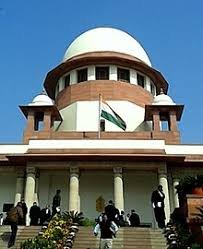The core of the case involves Parminder Singh’s quest for increased compensation after a 2014 motorcycle accident left him with quadriplegia and 100% disability. The Supreme Court reviewed lower court decisions, ultimately enhancing the compensation awarded to Singh significantly. Beyond the specific case, the court also issues broader directives to streamline the payment of compensation in motor accident cases, advocating for direct bank transfers to claimants to reduce delays and administrative burdens.
(A) Motor Vehicles Act, 1988, Section 166, 168 – MACT – Injury case – 100% permanent disability – Appellant was a young boy of 21 years of age at the time of the accident and having suffered quadriplegia the same resulted in his 100% permanent disability – He was learning the work for the Veterinary Doctor – He had completed his course of pig farming from Punjab Agricultural University – As the appellant had suffered 100% permanent disability he will have to live his entire life with that condition – As a result, he will require constant support of an attendant and a special diet – Held that the income of the appellant merely at ₹5,600/- per month will not be appropriate – This was even less than the minimum wage for unskilled worker, which at that time was ₹6,447.75 per month w.e.f. 01.03.2014 – For semi-skilled worker monthly minimum wage was ₹7,227.75 per month – Hence, the income of the appellant assessed as ₹7,500/- per month – High Court had rightly applied the multiplier of 18 but failed to grant future prospects under the head ‘Loss of Income’, which in the case of the appellant should be 40% – Hence, income after taking into account future prospects would be ₹10,500/- per month (₹7,500×1.4) – The appellant being 100% disabled also deserves to be granted expense towards attendant, which in the case at hand has to be assessed as ₹5,00,000/- in lumpsum and compensation towards special diet is required to be enhanced from ₹25,000/- to ₹1,00,000/- – Considering the significant impact of the disability on the life of appellant, the amount towards pain and suffering is also required to be enhanced from ₹15,000/- to ₹1,00,000/- – In addition, looking to his condition, ₹2,00,000/- is awarded for future medical expenses and ₹2,00,000/- for loss of marriage prospects – Though regarding expenses incurred by him on physiotherapy reliance on those receipts could not be placed in absence of clinching evidence but judicial notice can be taken of the fact that physiotherapy would be required, therefore deem it appropriate to award him lumpsum amount of ₹50,000/- on that count – Appellant held entitled to receive total compensation of ₹36,84,000/- instead of ₹ 15,25,600/- as awarded by the High Court – The impugned award of the High Court is modified to that extent – The amount so awarded shall carry interest at the same rate, at which it was awarded by the High Court on the enhanced compensation.
(Para 8 to 12)
(B) Constitution of India, Article 142 – Motor Vehicles Act, 1988, Section 166, 168 – MACT – Compensation award – Under the Motor Vehicles Act – Direction to transfer of amount into bank account of the claimant The general practice followed by the insurance companies, where the compensation is not disputed, is to deposit the same before the Tribunal – Instead of following that process, a direction can always be issued to transfer the amount into the bank account(s) of the claimant(s) with intimation to the Tribunal – For that purpose, the Tribunals at the initial stage of pleadings or at the stage of leading evidence may require the claimant(s) to furnish their bank account particulars to the Tribunal along with the requisite proof, so that at the stage of passing of the award the Tribunal may direct that the amount of compensation be transferred in the account of the claimant and if there are more than one then in their respective accounts – If there is no bank account, then they should be required to open the bank account either individually or jointly with family members only – It should also be mandated that, in case there is any change in the bank account particulars of the claimant(s) during the pendency of the claim petition they should update the same before the Tribunal – This should be ensured before passing of the final award – It may be ensured that the bank account should be in the name of the claimant(s) and if minor, through guardian(s) and in no case it should be a joint account with any person, who is not a family member – The transfer of the amount in the bank account, particulars of which have been furnished by the claimant(s), as mentioned in the award, shall be treated as satisfaction of the award – Intimation of compliance should be furnished to the Tribunal – In some cases, where the compensation is awarded to minor claimant(s) or otherwise, the Tribunal directs for keeping a certain percentage of the amount in a fixed deposit. Such a direction can always be issued in the award itself to be complied with by the concerned bank – When the amount is transferred by the Insurance Company in the account of the claimant(s), it shall be the responsibility of the bank to ensure that specified portion thereof is kept in the fixed deposit. Compliance is to be reported by the bank(s) to the Tribunal – Registry is directed to send a copy of this order to (1) the Registrars General of all the High Courts for placing the same before the Chief Justice of the High Court for further circulation and compliance by the concerned Tribunals/Courts; and (2) the Directors of the National Judicial Academy and the State Judicial Academies.
(Para 17 to 21)
Parminder Singh V. Honey Goyal
Supreme Court: 2025 INSC 361: (DoJ 18-03-2025)






